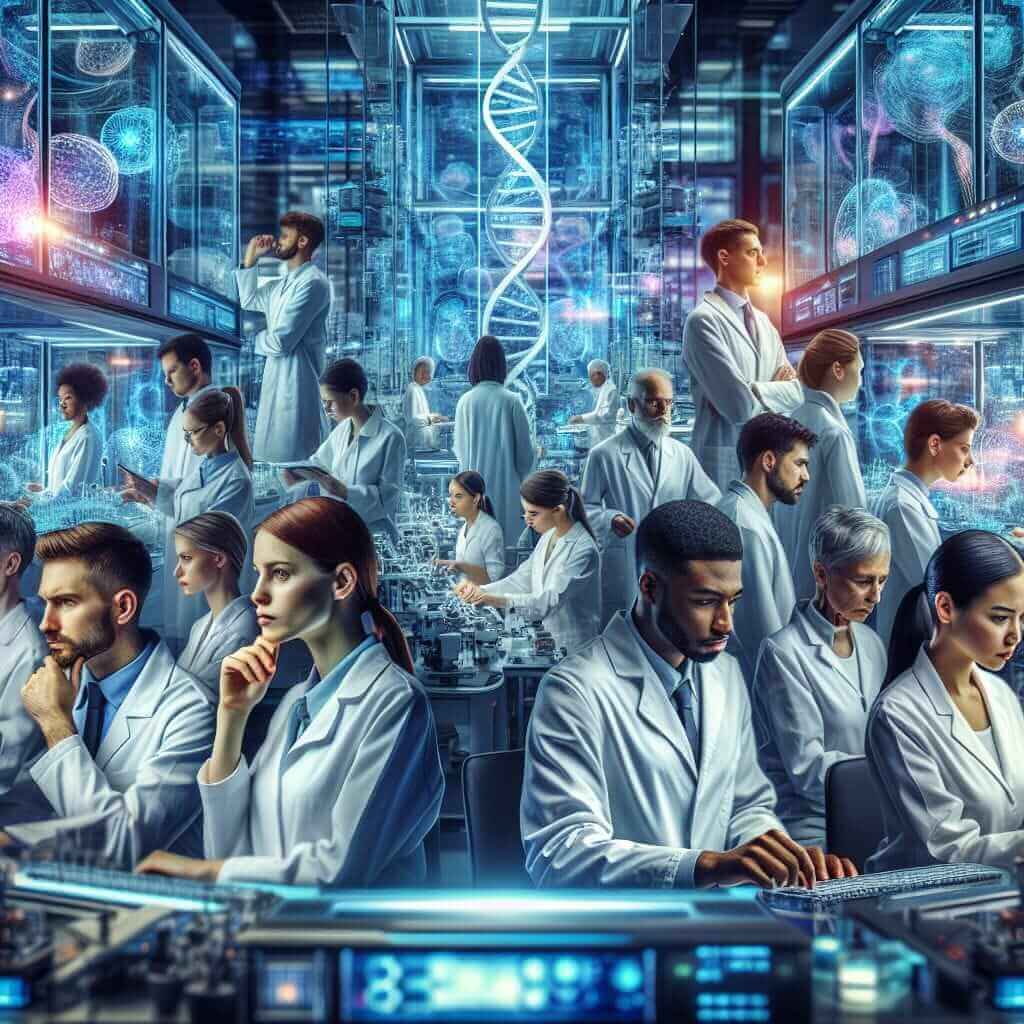The IELTS Reading section is renowned for its challenging texts and the variety of question types it includes. Understanding contemporary topics and their impacts, such as advancements in biotechnology impacting medicine, is crucial for excelling in this part of the test. This topic has surfaced in various forms in past IELTS exams, reflecting its importance and relevance in today’s world. Given the rapid developments in biotechnology, there’s a good chance similar topics will appear in future exams.
Reading Practice Test
Reading Passage
Biotechnology and Its Impact on Medicine
Biotechnology, a field that harnesses cellular and biomolecular processes to develop technologies and products, is revolutionizing medicine. The advancements in this field have led to significant breakthroughs that enhance the quality of healthcare, prolong life, and reduce the costs associated with treatment.
One of the most notable impacts of biotechnology in medicine is the development of personalized medicine. This approach tailors treatment plans to individual patients based on their genetic makeup. This customization increases the efficacy of treatments and reduces the incidence of adverse drug reactions.
Additionally, biotechnology has facilitated the development of advanced diagnostic tools. These tools enable the early detection of diseases, improving the chances of successful treatment and management. For instance, the use of biomarker-based assays allows for the detection of cancers at an early stage, which is crucial for effective intervention.
Furthermore, biotechnology has been pivotal in the advancement of regenerative medicine. This branch of medicine focuses on repairing or replacing damaged tissues and organs through the use of stem cells. Stem cell therapy shows promise in treating conditions such as Parkinson’s disease, spinal cord injuries, and heart disease.
The production of biopharmaceuticals is another area where biotechnology has made significant strides. Biopharmaceuticals are drugs produced using living organisms, and they include a range of products such as vaccines, hormones, and monoclonal antibodies. These drugs have improved the treatment of diseases like diabetes, cancer, and autoimmune disorders.
In conclusion, the impact of biotechnology on medicine is profound and multifaceted. As research and development continue, we can expect even more groundbreaking discoveries that will transform healthcare.

Questions
Multiple Choice
-
What is personalized medicine?
- A. Medicine that is specifically made in small quantities.
- B. Treatment plans tailored to individual genetic makeup.
- C. Over-the-counter drugs available for everyone.
- D. Traditional medicine practices.
-
What role do advanced diagnostic tools play in medicine?
- A. They assist in buying medicine online.
- B. They help in early detection of diseases.
- C. They reduce the need for medical professionals.
- D. They automate surgeries.
True/False/Not Given
- Personalized medicine increases the incidence of adverse drug reactions.
- Stem cell therapy can potentially treat Parkinson’s disease.
Matching Headings
Match the headings to the appropriate paragraphs in the passage.
- A. Advances in Diagnostic Tools
- B. Production of Biopharmaceuticals
- C. The Role of Regenerative Medicine
- D. Introduction to Biotechnology in Medicine
Summary Completion
Complete the summary below using words from the passage.
The field of biotechnology is (1) medicine by developing technologies such as (2) medicine and advanced diagnostic tools. Other significant contributions include regenerative medicine and the production of ___(3), leading to improved treatments for various diseases.
Answers
Multiple Choice
- B – Treatment plans tailored to individual genetic makeup.
- B – They help in early detection of diseases.
True/False/Not Given
- False – Personalized medicine reduces the incidence of adverse drug reactions.
- True – Stem cell therapy shows promise in treating Parkinson’s disease.
Matching Headings
- D
- A
- C
- B
Summary Completion
- revolutionizing
- personalized
- biopharmaceuticals
Common Mistakes
- Misinterpretation of Questions: Carefully read each question to understand exactly what is being asked.
- Skimming Without Understanding: Ensure to comprehend the main idea rather than skimming too quickly.
- Ignoring Keywords: Pay attention to important keywords that can guide you to the correct answers.
Vocabulary
- Efficacy (noun): /ˈɛfɪkəsi/ – the ability to produce the desired effect.
- Assay (noun): /əˈseɪ/ – examination and determination of the characteristics.
- Regenerative (adj): /rɪˈdʒɛnərətɪv/ – capable of being regenerated.
- Biopharmaceutical (noun): /ˌbaɪoʊfɑːrməˈsuːtɪkl/ – a pharmaceutical drug product manufactured in, extracted from, or semi-synthesized from biological sources.
Grammar Focus
-
Relative Clauses: Example usage in context – “Biopharmaceuticals, which include a range of products such as vaccines and hormones, have improved the treatment of diseases.”
- Formula: Main clause + relative pronoun + subordinate clause
-
Passive Voice: Example – “Stem cell therapy shows promise in treating conditions.”
- Formula: Subject + to be (in required tense) + past participle
Advice for High Scores in IELTS Reading
- Practice regularly with themes and topics similar to those in actual tests.
- Focus on understanding the main idea and details within each passage.
- Develop skills to identify and understand various question types.
- Enhance your vocabulary on contemporary issues, especially those related to science and technology.
- Stay updated on current advancements and technological developments, as they are common subjects in the IELTS Reading section.